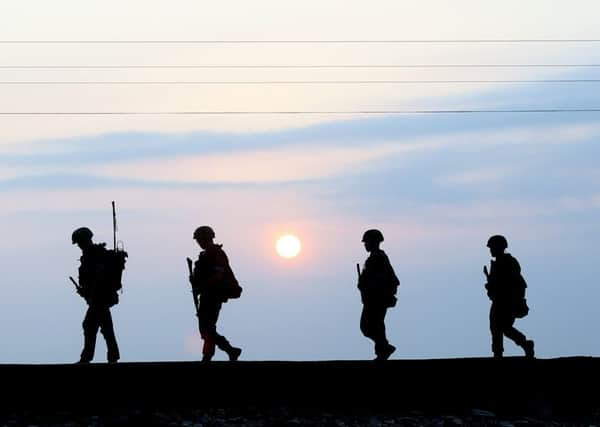Korea: Marathon talks avert immediate war threat


The first round of marathon talks on Saturday came to nothing, and South Korea’s military reported yesterday that it detected unusual troop and submarine movements in North Korea that indicated Pyongyang was strengthening its capability for a possible strike.
Still, even the decision for senior officials from countries that have spent recent days vowing to destroy each other to simply sit down at a table in Panmunjom – the border enclave where the 1953 armistice ending fighting in the Korean War was agreed to – is something of a victory.
Advertisement
Hide AdAdvertisement
Hide AdThe length of the first round of talks - nearly 10 hours - and the lack of immediate progress are not unusual. While the Koreas often have difficulty agreeing to talks, once they do, overlong sessions are often the rule. After decades of animosity and bloodshed, however, finding common ground is much harder.
South Korean presidential spokesman Min Kyung-wook did not disclose details about the first round of talks, which adjourned just before dawn yesterday morning. The talks began shortly after a deadline set by North Korea for the South to dismantle loudspeakers broadcasting anti-Pyongyang propaganda at their border.
North Korea had declared that its front-line troops were in full war readiness and prepared to go to battle if Seoul did not back down.
An official from Seoul’s Defence Ministry said about 70 per cent of the North’s more than 70 submarines and undersea craft had left their bases and were undetectable by the South Korean military as of Saturday.
The official also said the North had doubled the strength of its front-line artillery forces since the start of the talks early Saturday evening. “It seems that the North is pursuing dialogue on one side and preparing for battle on another side,” he said.
The standoff is the result of a series of events that started with the triggering of land mines on the southern side of the Demilitarized Zone between the Koreas that Seoul says were planted by North Korea. The explosions maimed two South Korean soldiers on a routine patrol.
In response, the South resumed anti-Pyongyang propaganda broadcasts for the first time in 11 years, infuriating the North, which is extremely sensitive to any criticism of its authoritarian system. There was shock and worry on Thursday, when South Korea’s military fired dozens of artillery rounds across the border in response to what Seoul said were North Korean artillery strikes meant to back up an earlier threat to attack the loudspeakers. The North denies it was behind the land mines and the shelling – claims that Seoul calls nonsense.
The Defence Ministry official said the South continued the anti-Pyongyang broadcasts even after the start of the talks on Saturday and also after the start of the second session yesterday. He said Seoul would decide after the talks whether to halt the broadcasts.
Advertisement
Hide AdAdvertisement
Hide AdWhile the meeting offered a way for the rivals to avoid an immediate conflict, analysts in Seoul wondered if the countries were standing too far apart to expect a quick agreement.
South Korea probably can’t afford to walk away with a weak agreement after it had openly vowed to stem a “vicious cycle” of North Korean provocations amid public anger over the land mines, said Koh Yu-hwan, a North Korea expert at Seoul’s Dongguk University.